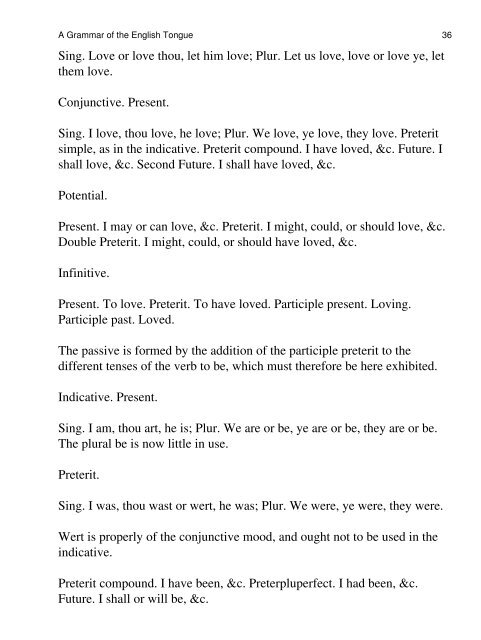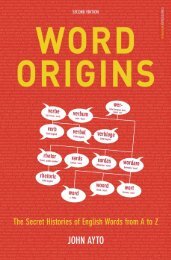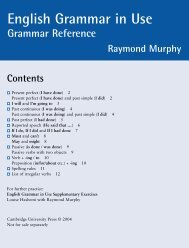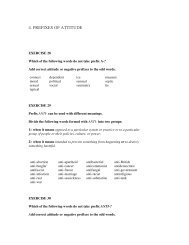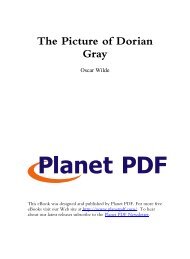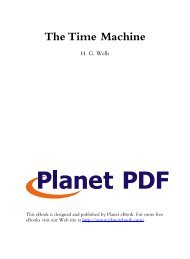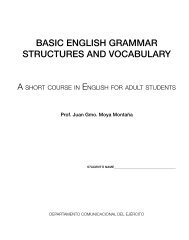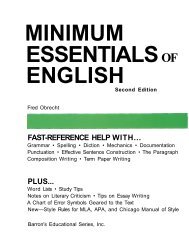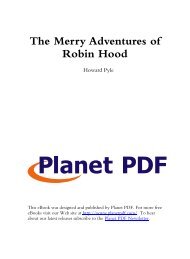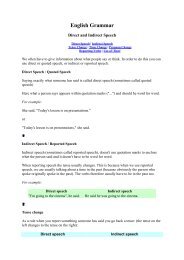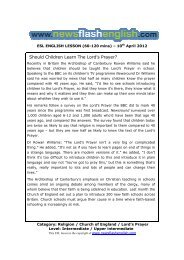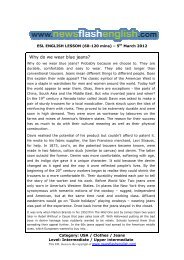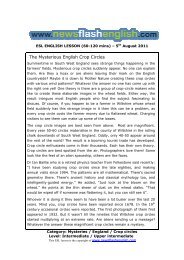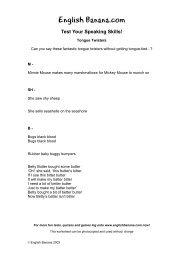A Grammar of the English Tongue - ESL Teachers Board
A Grammar of the English Tongue - ESL Teachers Board
A Grammar of the English Tongue - ESL Teachers Board
You also want an ePaper? Increase the reach of your titles
YUMPU automatically turns print PDFs into web optimized ePapers that Google loves.
A <strong>Grammar</strong> <strong>of</strong> <strong>the</strong> <strong>English</strong> <strong>Tongue</strong> 36Sing. Love or love thou, let him love; Plur. Let us love, love or love ye, let<strong>the</strong>m love.Conjunctive. Present.Sing. I love, thou love, he love; Plur. We love, ye love, <strong>the</strong>y love. Preteritsimple, as in <strong>the</strong> indicative. Preterit compound. I have loved, &c. Future. Ishall love, &c. Second Future. I shall have loved, &c.Potential.Present. I may or can love, &c. Preterit. I might, could, or should love, &c.Double Preterit. I might, could, or should have loved, &c.Infinitive.Present. To love. Preterit. To have loved. Participle present. Loving.Participle past. Loved.The passive is formed by <strong>the</strong> addition <strong>of</strong> <strong>the</strong> participle preterit to <strong>the</strong>different tenses <strong>of</strong> <strong>the</strong> verb to be, which must <strong>the</strong>refore be here exhibited.Indicative. Present.Sing. I am, thou art, he is; Plur. We are or be, ye are or be, <strong>the</strong>y are or be.The plural be is now little in use.Preterit.Sing. I was, thou wast or wert, he was; Plur. We were, ye were, <strong>the</strong>y were.Wert is properly <strong>of</strong> <strong>the</strong> conjunctive mood, and ought not to be used in <strong>the</strong>indicative.Preterit compound. I have been, &c. Preterpluperfect. I had been, &c.Future. I shall or will be, &c.


